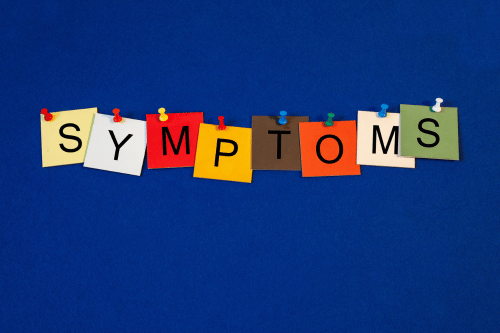

Alcohol detox, or alcohol withdrawal syndrome (AWS), represents a complex physiological and psychological response as the body attempts to re-establish equilibrium after prolonged alcohol dependence. The symptoms are diverse, ranging from mild discomfort to life-threatening medical emergencies. Patients commonly experience physical manifestations such as nausea, vomiting, headache, and tremors, alongside psychological distress including irritability, anxiety, and insomnia. Critically, severe withdrawal can escalate to profound confusion, vivid hallucinations, generalized seizures, or the potentially fatal condition known as delirium tremens (DTs).
Because alcohol acts as a central nervous system depressant, its abrupt cessation places significant stress on the body’s homeostatic mechanisms, increasing the risk for severe complications. Problems such as hypertension, tachycardia, hyperthermia, and critical electrolyte imbalances (e.g., hypomagnesemia, hypokalemia) frequently necessitate immediate medical intervention, pharmacotherapy, and close monitoring. Without professional medical supervision, the progression of AWS can lead to dangerous outcomes requiring emergency treatment, including cardiovascular collapse or respiratory arrest.
Alcohol exerts its primary effects by modulating neurotransmitter activity within the central nervous system, most notably by enhancing the inhibitory effects of gamma-aminobutyric acid (GABA) and inhibiting the excitatory effects of N-methyl-D-aspartate (NMDA) receptors. Chronic alcohol consumption leads to neuroadaptation, where the brain downregulates its natural GABA production and upregulates NMDA receptors to counteract alcohol’s persistent presence. When alcohol intake ceases, this delicate balance is disrupted, resulting in a state of hyperexcitability. This neurobiological imbalance manifests as the characteristic symptoms of alcohol withdrawal syndrome, including heightened anxiety, severe insomnia, irritability, and various gastrointestinal disturbances such as nausea, vomiting, and diarrhea.
The alcohol withdrawal timeline is highly individualized, influenced by factors such as the patient’s history of alcohol use disorder, overall physical health, and pre-existing nutritional deficiencies (e.g., thiamine, magnesium). Early signs, such as elevated blood pressure, tremors, and diaphoresis, can emerge within hours of the last drink. Without appropriate medical management, these symptoms can rapidly progress to severe manifestations like psychosis, vivid hallucinations, or generalized tonic-clonic seizures. In critical cases, patients may require admission to an intensive care unit (ICU), where a multidisciplinary team comprising internal medicine specialists, psychiatrists, and pain management experts collaborates to mitigate risks and optimize prognosis.

The clinical presentation of alcohol detox symptoms varies significantly in severity, directly correlating with the patient’s degree of alcohol dependence and the duration of their alcohol use disorder. Symptoms can be broadly categorized:
Continuous monitoring of vital signs, including blood pressure, pulse, respiratory rate, and temperature, is paramount for health professionals to identify and address potential complications promptly.
Delirium Tremens (DTs) stands as the most severe and life-threatening manifestation of alcohol withdrawal syndrome, constituting a true medical emergency. Characterized by a profound alteration in mental status, marked autonomic hyperactivity, and often vivid hallucinations, DTs typically emerges 48 to 96 hours after the last drink, though onset can vary. Key diagnostic features include:
Without aggressive and timely medical intervention, the mortality rate for DTs can be as high as 15-20%, primarily due to cardiovascular collapse, respiratory failure, or intractable seizures. Patients with a history of heavy, prolonged alcohol use, previous withdrawal episodes, or co-occurring medical conditions are at significantly elevated risk. Management requires intensive medical care, often in an ICU setting, involving continuous monitoring, aggressive fluid and electrolyte repletion, and high-dose benzodiazepine therapy, often supplemented by other agents under the guidance of internal medicine, emergency medicine, and psychiatry specialists.
Pharmacological intervention is the cornerstone of safe and effective alcohol detoxification, primarily aimed at mitigating withdrawal symptoms, preventing severe complications like seizures and DTs, and stabilizing the patient’s physiological state. The primary class of medications utilized are benzodiazepines.
Ongoing attention from a health professional ensures safe dosing, proper monitoring of vital signs, and management of potential side effects, optimizing patient safety and comfort throughout the detox process.

A meticulous physical examination and comprehensive medical history are foundational to initiating a safe and effective alcohol detoxification protocol. Health professionals conduct a thorough assessment of the patient’s current physical condition, neurological status, mental health, and past medical history, including previous withdrawal episodes, to formulate an individualized treatment plan that minimizes risks. Immediate attention is given to signs of dehydration, acute injuries, and gastrointestinal distress such as persistent vomiting or diarrhea, which can exacerbate electrolyte imbalances.
Throughout the detox process, patients are subjected to continuous, rigorous monitoring of vital signs, including blood pressure, heart rate, respiratory rate, and temperature. Neurological assessments, including evaluation for tremors, agitation, and cognitive status (e.g., using the CIWA-Ar scale), are performed regularly. Any rapid changes in vital signs, such as escalating tachycardia, severe hypertension, hyperthermia, or the emergence of seizure activity, necessitate an immediate medical response. In cases of severe or complicated withdrawal, particularly with suspected or confirmed delirium tremens, admission to an intensive care unit (ICU) provides the necessary environment for constant supervision and rapid intervention.
The psychological and psychiatric sequelae of alcohol withdrawal are profound and constitute a significant component of the detox experience. Patients frequently contend with intense anxiety, pervasive depression, rapid mood swings, and heightened irritability. These symptoms are directly linked to the neurochemical dysregulation occurring as the brain attempts to re-establish equilibrium without alcohol. In more severe cases, patients may experience vivid hallucinations (visual, auditory, tactile) or frank psychosis, reflecting severe central nervous system excitability.
Integrated psychiatric involvement is crucial for managing these complex mental health symptoms. Acute pharmacological interventions may be necessary to stabilize mood and reduce psychotic features. Beyond the acute phase, therapy sessions, including cognitive behavioral therapy (CBT) and dialectical behavior therapy (DBT), provide essential coping skills to manage cravings, stress, and underlying mental health conditions. Addressing these mental health concerns early and comprehensively significantly improves the overall prognosis and substantially reduces the risk of relapse into alcohol use.
Alcohol withdrawal seizures represent a major and potentially life-threatening complication of alcohol detoxification. These seizures are typically generalized tonic-clonic (grand mal) seizures and most commonly occur within the first 12 to 48 hours after the cessation or significant reduction of alcohol intake, though they can manifest earlier or later. The underlying mechanism involves the severe neuronal hyperexcitability resulting from the abrupt removal of alcohol’s inhibitory effects and the subsequent upregulation of excitatory neurotransmission.
Patients with a history of chronic, heavy alcohol dependence, prior withdrawal seizures, or co-occurring neurological conditions are at significantly elevated risk. Prophylactic medication, primarily benzodiazepines (e.g., lorazepam, diazepam), is administered to stabilize the central nervous system and reduce seizure threshold. In the event of an active seizure, emergency medical care is immediately initiated, often involving intravenous administration of benzodiazepines to rapidly terminate seizure activity. Close neurological monitoring is imperative during this high-risk period to ensure patient safety and prevent status epilepticus, a prolonged or recurrent seizure state that can lead to permanent brain damage or death.

Alcohol detoxification should unequivocally occur under stringent medical supervision due to the inherent risks of severe complications. A multidisciplinary team of health professionals, often including internal medicine physicians, psychiatrists, emergency medicine specialists, and addiction nurses, collaborates to ensure a safe and effective withdrawal process. This comprehensive support encompasses:
This integrated approach not only prevents acute life-threatening complications but also addresses long-term health consequences, significantly improving the patient’s overall health trajectory and laying the groundwork for sustained recovery.
The progression of alcohol withdrawal symptoms follows a general timeline, though individual variations are significant, influenced by the patient’s degree of alcohol dependence, overall health status, and history of alcohol use. Understanding these stages is crucial for timely intervention:
Stage 1: Early Withdrawal (6–12 hours post-last drink):
Stage 2: Peak Withdrawal (12–48 hours post-last drink):
Stage 3: Severe Withdrawal / Delirium Tremens (48–96 hours post-last drink):
Stage 4: Resolution and Protracted Withdrawal (5–7 days and beyond):
Close medical monitoring and symptom-triggered treatment protocols are essential throughout this timeline to manage evolving symptoms and prevent life-threatening complications.
While medical detoxification effectively manages the acute physiological symptoms of withdrawal, it is merely the initial step in addressing alcohol use disorder. Addiction is a chronic, relapsing brain disease, and detox alone does not resolve its underlying complexities. Therefore, comprehensive therapy is an indispensable component of long-term recovery, providing patients with the essential tools and strategies to maintain sobriety and rebuild a fulfilling life.
Evidence-based therapeutic modalities include:
Psychiatric care, including medication management for co-occurring mental health conditions, often complements therapy. At Sullivan Recovery, therapy is seamlessly integrated with outpatient treatment programs, providing patients with structured support, personalized attention, and significantly enhancing their prognosis for long-term sobriety and improved quality of life.
Nutrition plays a profoundly vital role throughout the alcohol detoxification and recovery process. Chronic alcohol abuse inflicts significant damage upon the gastrointestinal tract, impairing nutrient absorption and leading to widespread nutritional deficiencies. These deficiencies not only exacerbate withdrawal symptoms but also increase the risk of severe medical complications and long-term neurological damage.
Common and critical deficiencies include:
A health professional meticulously monitors the patient’s appetite, hydration status, and electrolyte balance. Intravenous (IV) fluids, coupled with targeted supplementation of thiamine, magnesium, and other essential vitamins and minerals, are crucial for restoring physiological balance. Correcting these imbalances not only alleviates acute withdrawal symptoms like confusion, irritability, and fatigue but also significantly improves mood, cognitive function, and overall physical health, thereby supporting a more stable and successful recovery.

The prognosis for individuals undergoing alcohol detoxification is directly correlated with the comprehensiveness of their care, encompassing medical supervision, appropriate pharmacotherapy, and sustained engagement in long-term therapy. Patients who receive professional, medically supervised detox, coupled with effective symptom management and integrated psychiatric support, experience safer withdrawal and significantly reduced rates of acute complications and relapse.
Key factors influencing a positive prognosis include:
Conversely, attempting alcohol detox without medical guidance is exceedingly dangerous, carrying substantial risks of severe complications including seizures, delirium tremens, hyperthermia, and even fatality. Untreated alcohol dependence often leads to chronic health problems, including irreversible organ damage (e.g., liver disease, cardiomyopathy), persistent hypertension, neurological deficits, and increased risk of injury due to impaired judgment. A structured, integrated program that combines medical detoxification, internal medicine expertise, psychiatric care, and ongoing therapy provides the optimal framework for achieving sustained sobriety and improving long-term health outcomes.
At Sullivan Recovery in Mission Viejo, we specialize in providing comprehensive outpatient detox programs designed to facilitate a safe and effective withdrawal process while allowing patients to maintain their daily responsibilities. Our integrated approach combines evidence-based therapy, precise medication management, and dedicated psychiatric support. Our team of experienced health professionals meticulously monitors withdrawal symptoms, manages vital signs such as blood pressure and heart rate, and administers necessary medications, including benzodiazepines for symptom control and thiamine for nutritional repletion. This holistic strategy ensures a balanced focus on both physical recovery and mental health stabilization.
Outpatient care offers unparalleled flexibility, empowering patients to engage in crucial therapeutic interventions while continuing to navigate their personal and professional lives. This continuous engagement with care significantly reduces relapse risk and enhances the long-term prognosis for sobriety. By seamlessly integrating medical detoxification with ongoing therapy and robust aftercare planning, Sullivan Recovery empowers patients to achieve lasting sobriety, regain control over their lives, and build a foundation for a healthier future.
Contact Sullivan Recovery today to learn more about our personalized outpatient detox programs and begin your journey to lasting wellness.
In summary, the symptoms of alcohol detoxification are multifaceted and can range from mild discomfort to severe, life-threatening medical emergencies. These include a spectrum of physical manifestations such as anxiety, insomnia, nausea, vomiting, headache, and irritability, alongside critical neurological and psychiatric symptoms like confusion, hallucinations, and, in the most severe instances, generalized seizures or delirium tremens. Furthermore, patients are at risk for serious physiological complications, including profound electrolyte imbalances, hyperthermia, and severe hypertension, all of which necessitate immediate and vigilant medical monitoring.
It is unequivocally clear that alcohol detoxification must be undertaken with professional medical supervision. At Sullivan Recovery, our outpatient programs are meticulously designed to integrate expert health professional care, evidence-based therapy, and precise medication management to ensure a safe, effective, and supportive withdrawal experience. With dedicated attention, comprehensive support, and expert guidance, sustainable recovery from alcohol addiction is not only possible but a tangible reality for those committed to their journey towards wellness.
The information presented in this article is derived from reputable medical and scientific institutions, reflecting current understanding of alcohol detoxification and recovery. For further in-depth information, please consult the following:
At Sullivan Recovery, as an in-network provider we work with most insurance plans, such as:
And More
If you or a loved one are struggling with mental health challenges or substance abuse, reach out to Sullivan Recovery today. Our team of compassionate professionals is here to support your journey towards lasting well-being. Give us a call at 949-836-7180.
Yes, if not managed under professional medical supervision, alcohol detox can lead to significant and potentially long-lasting health issues. Severe, unmanaged withdrawal can result in chronic complications such as persistent electrolyte imbalances, intractable hypertension, cardiovascular damage, and protracted insomnia or anxiety. Conversely, professional medical care significantly mitigates these risks and substantially improves long-term health outcomes and overall well-being.
During alcohol detox, health professionals employ rigorous and continuous monitoring protocols. This includes frequent assessment of vital signs (blood pressure, pulse, respiratory rate, temperature), neurological status (tremors, agitation, cognitive function using tools like CIWA-Ar), and mental health (mood, anxiety, presence of hallucinations or psychosis). Regular physical examinations are conducted to identify and address any emerging complications, ensuring the patient’s stability and safety throughout the withdrawal process.
While not every individual undergoing alcohol detox will require medication, it is strongly recommended and often essential for those with moderate to severe alcohol dependence to ensure safety and comfort. Benzodiazepines (e.g., lorazepam, diazepam, chlordiazepoxide) are the primary pharmacological agents used to prevent seizures, manage agitation, and stabilize the central nervous system. Additionally, critical nutrient supplements like thiamine and magnesium are routinely administered to correct deficiencies and prevent severe neurological complications.
Nutrition is a cornerstone of successful alcohol detox and recovery. Chronic alcohol abuse severely compromises gastrointestinal health, leading to malabsorption and widespread nutrient deficiencies (e.g., thiamine, magnesium, folate). Addressing these deficiencies through targeted supplementation and a balanced diet is crucial. Proper nutrition supports both physical healing and mental health stability, improving cognitive function, mood regulation, energy levels, and overall prognosis after detox. Restoring appetite and correcting nutritional imbalances are vital steps in the journey to sustained wellness.